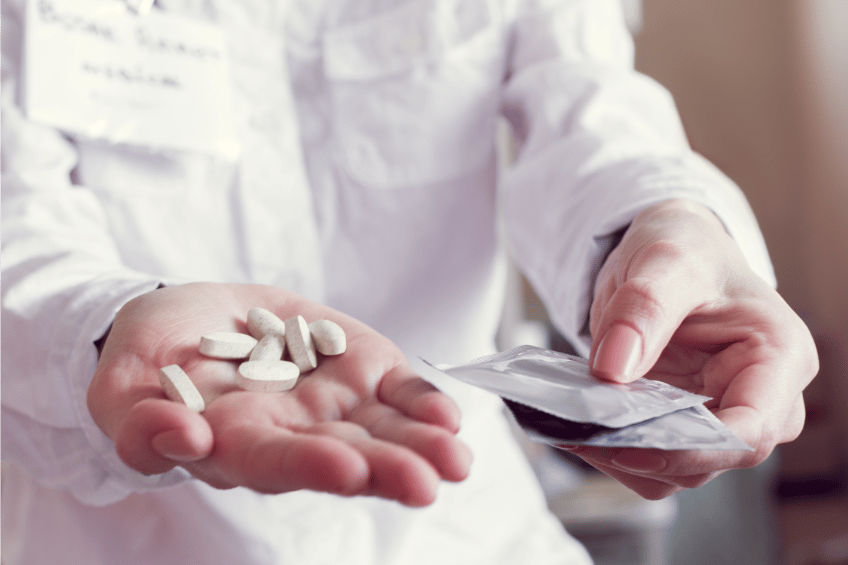Complications in Newborns
Congenital syphilis may be dangerous to newborns. Whereas 2/3 of babies born with syphilis will not have any signs or symptoms within the first two years of their life, others might suffer from an enlarged liver or spleen, profuse nasal drip, jaundice, pneumonitis or seizures. [5]
When they are 2 years old, infected children may develop physical deformities and other serious complications, such as:
- Blunted upper front teeth;
- The collapse of the nasal bone (known as saddle nose);
- A protruding jawbone and foreshortened upper jaw;
- A protruding forehead (frontal bossing);
- Bowing of the shin bones;
- Swollen knees;
- Pathology of the eyeball (know as parenchymal keratitis);
- Deafness from birth;
- Developmental issues.
A child exposed to an infection before birth will typically have weak health even if the mother has been cured from syphilis. Without treatment, the child may have large malformations and remain disabled. Breastfeeding is impossible if the woman is still infected after giving birth, since syphilis is transmitted through the mother’s milk. [5, 6]

Risk Factors and Prevention
While anyone can get infected, some groups of people are at greater risk. Recognized risk factors for getting infected with syphilis include:
- Being sexually active;
- Engaging in unprotected sex with multiple sex partners;
- MSM (gay sexual practices);
- Being HIV-positive;
- Having a sexual partner who tests positive for syphilis.
It is important to know that if you have had syphilis and have been successfully treated, you can get infected again. [2]
Safer sex practices, including monogamy and proper use of condoms can help to minimize the risk of getting syphilis. Though they do offer a level of protection, they are not a guarantee.
Because syphilis may have no symptoms or only minor symptoms in some patients, it is often overlooked. That is why it is recommended to take action if there is a slightest chance you may have been exposed to the infection. If you have had unprotected sex or multiple partners, do consider getting an STD test. Screening is usually done through rapid tests providing results within 20 minutes.
Identifying infection early and treatment of cases which test positive can prevent further transmission and adverse pregnancy outcomes, including congenital syphilis, stillbirth and neonatal birth. [4, 5]
